Hiring Klopp, signing Van Dijk and finding ‘500 ways to win’: The 30 steps to Liverpool’s Premier League title
From the moment owners Fenway Sports Group finally secured Klopp as manager at the third time of trying, the club have built towards being England’s best again. This is how they got there

Your support helps us to tell the story
From reproductive rights to climate change to Big Tech, The Independent is on the ground when the story is developing. Whether it's investigating the financials of Elon Musk's pro-Trump PAC or producing our latest documentary, 'The A Word', which shines a light on the American women fighting for reproductive rights, we know how important it is to parse out the facts from the messaging.
At such a critical moment in US history, we need reporters on the ground. Your donation allows us to keep sending journalists to speak to both sides of the story.
The Independent is trusted by Americans across the entire political spectrum. And unlike many other quality news outlets, we choose not to lock Americans out of our reporting and analysis with paywalls. We believe quality journalism should be available to everyone, paid for by those who can afford it.
Your support makes all the difference.After a 30-year wait, Liverpool have finally lifted the trophy they have pined for and prized above all. At Melwood, there has been a regular reminder that “a title is not won in a season, but through actions over a long period.”
This success has been carved through a series of smart decisions, learning from failure, patience through development and sticking to a way of working even when it might not be popular or follow conventional wisdom.
From the moment Liverpool owners Fenway Sports Group finally secured Jurgen Klopp as manager at the third time of trying, the club have built towards being England’s best again.
Here, The Independent underlines thirty crucial steps to them being crowed champions…
Right man, right structure
In September 2015, Liverpool’s owners knew they had to strike. The manager they had always coveted was on a sabbatical. Brendan Rodgers, the man in the dugout had ended the previous season in charge of a 6-1 defeat to Stoke City and had amassed three wins in 11 games across all competitions at the start of 2015-16.
It wasn’t solely results that were an issue, performances were lifeless, the fanbase was divided and sitting above all these factors was a problematic structural split. FSG had favoured a collaborative approach to transfers and football operations, where expert minds in each field could combine to make informed decisions, while Rodgers favoured the old-school autocratic method of managers being in control.
The relationship wasn’t working on any level, crystallised by the club having a dual policy at play. This was evident when recruitment pushed for the signing of Roberto Firmino for £29million, believing he could be the long-term No 9, while Christian Benteke was also signed for £32.5m to operate in the same position to appease Rodgers.
That September, Liverpool’s chief executive at the time, Ian Ayre made a call that would put the most crucial part of the club’s restoration in motion. He dialled Klopp’s agent, Marc Kosicke, which led to a Skype session and then a face-to-face interview with FSG in New York.
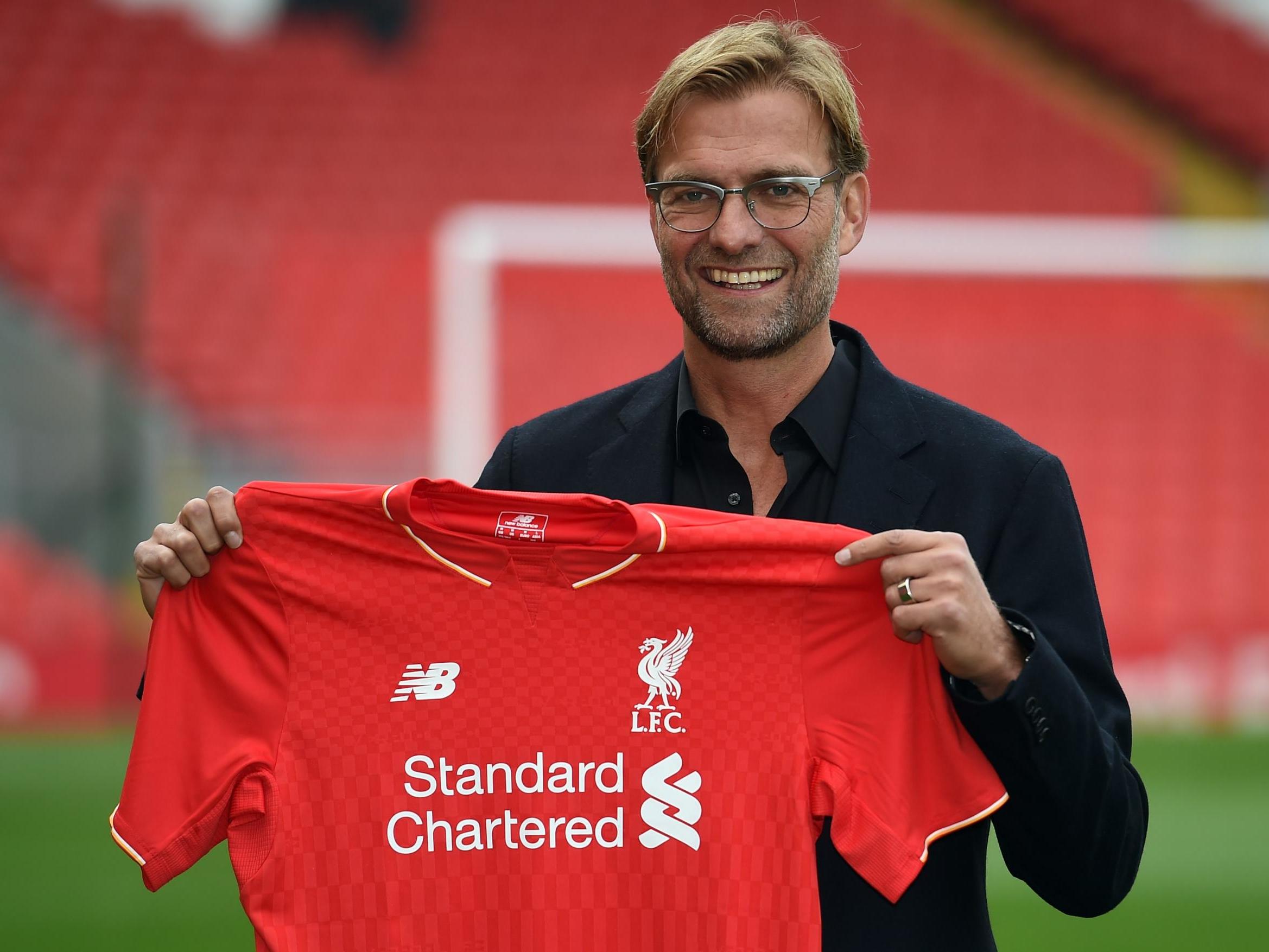
By this point, Liverpool already had a 60-page dossier detailing every element of the German’s management, but the meeting at the law offices of Shearman & Sterling in Lexington Avenue underscored what they were convinced of: he was the right man at the right time under the right structure.
During a six-hour meeting, Klopp outlined how he would reconstruct the Merseysiders into a domestic and continental powerhouse again. The process would be gradual, but effective. Everything he spelled out nearly five years ago has been put into practice.
“If you look back at his message and see how we made all these steps over the years to get closer and closer to it, it is incredible,” assistant manager Pep Lijnders explained.
“He is very organised in that way – he knows the end picture. The character of the leader can be the most powerful tool and his character defines this team. We could see that from the beginning.”
FSG were so enthused by Klopp’s rejuvenation of the club that they rewarded him with a new six-year deal in June 2016. Last December, he inked another extension until 2024.
On his three-year anniversary in charge, with silverware still elusive, Klopp said: “The only thing I can do is to put all I have – my knowledge, passion, heart, experience, everything – I throw it into this club, 100 per cent.
“I don’t keep anything back and it should work actually at one point.”
Liverpool have gone on to become champions of Europe, the world and now of England.
One voice
With Klopp’s appointment, there was no longer dual policies in operation at the club. Liverpool, while being collaborative, were united under a common purpose.
Everything from on-pitch identity, profile of transfer targets to the work at the Academy were joined up. A great example of this ‘one voice’ strategy was the priming of Trent Alexander-Arnold at Kirkby to become Liverpool’s right-back.
Through talks with Klopp and sporting director Michael Edwards, Academy manager Alex Inglethorpe calculated the smoothest pathway to the first team was defending that flank and switched the Scouser from midfield to fullback.
For three months, under the guidance of then Under-18s manager Neil Critchley, Alexander-Arnold was put through gruelling training sessions to prepare him for the German’s demands in the position.
They worked on the teenager’s mental and physical endurance as well as eliminating his petulance. Liverpool have one of the best right backs in the world, aged just 21, in a nod to how having a clear vision across all departments can have influential effects.
The holy trinity
At the crux of implementing Liverpool’s united strategy is the triad of Klopp, Edwards and FSG president, Mike Gordon. Their relationship is informal, open and honest with a basis of trust and respect for each individual’s area of expertise.
Edwards sifts through the recruitment analysis and pinpoints the right players for Liverpool, which him and Klopp causally discuss over breakfast or lunch in the canteen at Melwood before working through a more detailed analysis.
The manager and what he has created on Merseyside is the magnet for prospective targets. The pair also strategise over improving the club off the pitch, as evidenced in the new state-of-the-art training facility under construction in Kirkby.
Gordon underwrites their wishes, but also provides whatever support is necessary beyond a financial sense. A case in point was when he stepped in to rehabilitate Liverpool’s relations with Southampton, which was critical to completing the Virgil van Dijk deal following the tapping-up saga.
The strength of the trio’s relationship is highlighted by the ease in which big decisions are made and completed – Klopp’s contract renewals and tying down the core of the squad serves as an example.
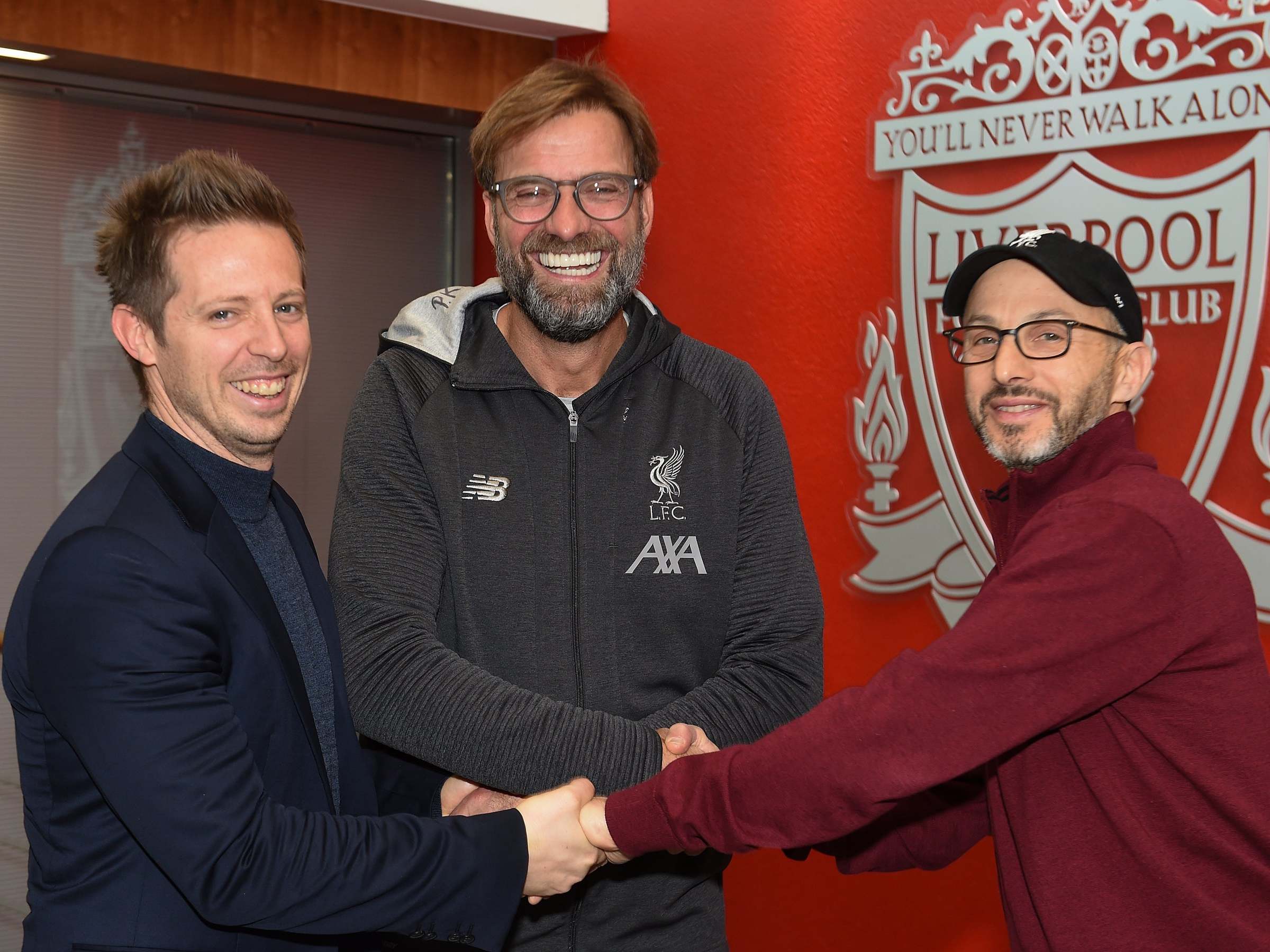
Removing the doubts
When Klopp arrived at Liverpool, he found a squad devoid of belief in themselves, a fanbase so accustomed to disappointment they anticipated it and staff who felt disempowered.
There was a toxic disjoint across the club, which needed immediate remedying. The manager’s appointment was universally celebrated and so it presented an opportunity to flag the issues from the off and go about eroding them.
At his unveiling, Klopp addressed the supporters, urging them to turn from “doubters to believers,” and to stop “carrying history around in a backpack” because it was time to write a new story.
He urged the press not to paint him as a miracle worker, because success would require patience and the right process.
Klopp knew resetting the squad’s mentality would be key to pulling everything together.
“It is only important we play our own game, let the players feel the confidence and the trust of the people,” he said at his opening press conference. “It is a real important thing that the players feel the difference from now on. They have to think they can reach the expectations of all the people, of all the fans, of the press.”
Away from the cameras, Klopp had gathered the squad in the media briefing room at Melwood. For their first meeting together, he “wrote in big letters the word ‘TEAM’ and I said that is what I want us to be.
“’T’ is for terrible to play against. ‘E’ for enthusiastic. ‘A’ for ambitious. ‘M’ for mentally-strong machines.”
The message was fundamentally simple, but that was the point. Klopp had no desire to overcomplicate matters – he needed to be clear and have quick buy-in.
Apart from telling the players what he wanted them to become, he expressed that he was already convinced in their quality.
This was essential, because as he would later explain: “When I came in, nobody liked the team – not even the team liked the team!
“They didn’t say it, but they didn’t have to because I could see it. They thought they were not good enough to be in a Liverpool side because everybody gave them that feeling.
“The only person who was happy with the team was me, I thought ‘oh that’s a good team’ and all the others said ‘no we are not good here, we are not good there’. No, no, no it’s a good team, especially as it’s our team. When you cannot change it the moment, why do we think about it anyway? I don’t understand it.
“Always in life we have to make the best of a situation so I came in and I was completely enthusiastic about the potential of this team and their quality, which gave the boys a little lift.”
Klopp told every individual they were at Liverpool for a reason and could contribute to a glorious new history.
Displays away at Chelsea and Manchester City early into his tenure showed the squad what they were capable of and they lost the League Cup final to the latter on account of penalties. Liverpool’s Europa League run – dismantling Manchester United before dumping favourites Borussia Dortmund out of the competition during unbelievable scenes at Anfield – further cemented the notion that something special was brewing.
The doubts were rapidly dissipating to be replaced by credence.
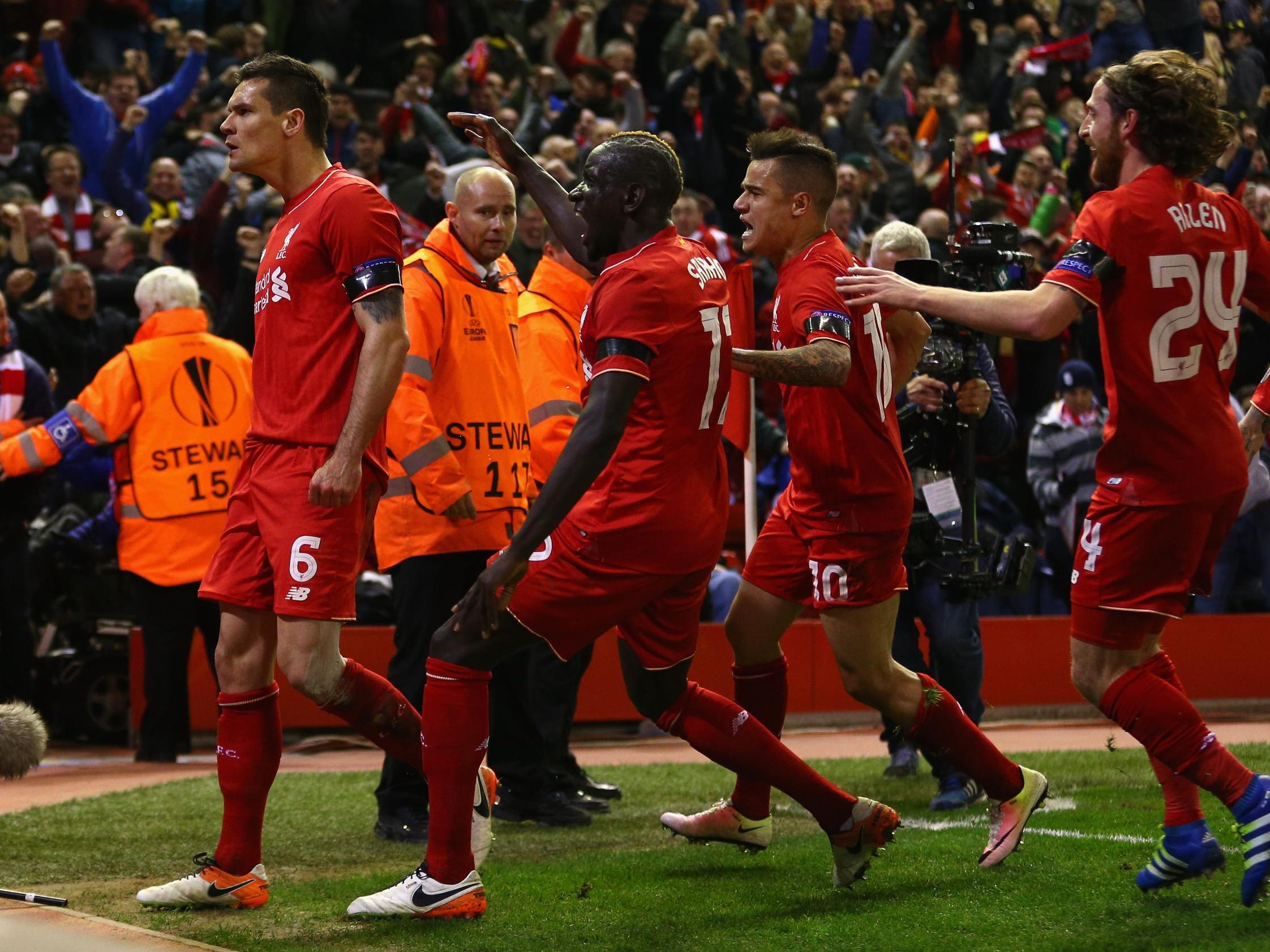
‘Everyone is responsible for everything’
While the team believing in themselves was necessary, Klopp needed them to have faith in, appreciate and respect the operation around them.
After the first big meeting with the the players, he kept them in the press room at Melwood and made all the staff at the training complex come in to share who they are and what they did.
“All of these people are here to help you perform at 100 per cent,” Klopp told the squad.
It was a moment those at the facility often still circle back to. As Lijnders explained: “In that meeting, he created the responsibility we had to each other, the responsibility to perform and he told us “‘everyone is responsible for everything’.”
Implementing an on-pitch identity
When Klopp and FSG spent hours talking through Liverpool’s future in October 2015, the ownership group did not noose the manager with points or position targets. They wanted a complete overhaul of the state of play and understood that meant looking beyond results.
The directive to Klopp was to impart a recognisable on-pitch identity as he had done at Dortmund. FSG wanted Liverpool to be so unmistakable that even if they weren’t in club kits it was obvious that it was still them.
The first rule the manager laid down was “counter-pressing is not a requirement, it is the law.” One of the mantras at Melwood remains “intensity is our identity.”
While Liverpool have evolved from a ruthless unit on the break that needed to blitz opponents and can win in a variety of ways, their desire to own the ball and to tattoo their tempo on a game remains.
In the aftermath of the scorching of Crystal Palace on Wednesday, which virtually secured them the title, Klopp remarked: “I cannot remember a 4-0 after 80 minutes or so when, if a player from the other team wins the ball, there are four players chasing like it is the only ball. I really like that and that is us.
“That is us; there are different ways to play football, but this is us – you want to have the ball, you can have it, but we want to have it back. And when we have the ball, we do some good stuff with it. That is us.”
Ignoring the noise
During the opening months of being at the helm, Klopp stressed that every decision Liverpool took would be questioned but the club had to remain unwavering in their strategy.
From criticising his use of Roberto Firmino as a No. 9, his commitment to signing Van Dijk and not just another centre-back for the sake of it, or his aversion to spending if he doesn’t believe it is absolutely necessary, Klopp has taught the club to switch off the noise and amplify their own opinions.
Re-energising the fanbase
On 13 December 2015, when Liverpool secured a 2-2 draw with West Bromwich Albion on account of a deflected Divock Origi strike on 90 minutes at Anfield and Klopp led the players arms interlinked to salute The Kop, he was derided.
That, however, was the start of the manager underlining to the fans how pivotal they were for the team and that their efforts to help force a late goal was appreciated. Through the Europa League run and the return to club football’s elite competition, Liverpool were not just revived on the pitch, but the terraces too.
There is the powerful image of the United players looking over at the banners in The Kop as they lined up at Anfield in the Europa League Round of 16. They were overawed by the atmosphere before they were thoroughly outplayed.
After the 4-3 home victory over Dortmund, the visiting manager at the time Thomas Tuchel concluded: “If you have such a strong belief from the crowd, then things can happen.”
Liverpool were feeding off the fans and vice versa.
In February 2018, when the Reds went to Porto in the Champions League Round of 16 and ridiculed the hosts’ astonishing record at Estadio da Dragao with a 5-0 victory, Allez, Allez, Allez first got its airing on concourses. Jamie Webster, an electrician that headlines the BOSS Night gigs, heard the words of the song and improved the melody by speeding it up a little and amending the rhythm of the clap.
From then, the re-energising of supporters escalated. Fan culture – in terms of new chants, flags, media and merchandise – was on the up. The unity between players and those in the stands was evident when Liverpool secured their passage to the 2018 Champions League final at Roma.
After the final whistle at the Stadio Olimpico, you had the players holding up the flag for Sean Cox, who had been attacked outside Anfield in the reverse leg.
Sadio Mane broke the security barrier to get closer to the fans in the stadium. Alexander-Arnold and Ben Woodburn came back out from the dressing room to chant with the supporters and Klopp returned from his media duties to celebrate for a lengthy period too.
All of this led to Liverpool setting up a concert at Shevchenko Park on the day of the final against Real Madrid, which turned into a sea of red with thousands singing, swaying, and twirling their scarves in the air for hours. The intoxication turned to defiance inside the NSC Olimpiyskiy as the Spanish giants won their third Champions League on the spin, as there was a feeling that this was not the end of the continental story.
Then, Barcelona happened. And last June, Liverpool were back and lifted a sixth European Cup, leading to over 700,000 filtering into the city centre for the parade. “It was not like anything I could imagine,” Klopp said of the scenes as the bus made its way through the Strand, in front of the Three Graces with red fireworks painting the sky and people as far as the eye could see.
“Unbelievable. The noise was unbelievable and how they kept that going was unbelievable. And the eye contact, the little moments with different people were just outstanding and we knew before what it means to people obviously, but it’s really different to see it face to face. And that was a big day in all our lives.”
Liverpool fans will not be able to celebrate the title en masse for a while, but that will not erode the emotion of a 30-year wait and this rebirth under Klopp.
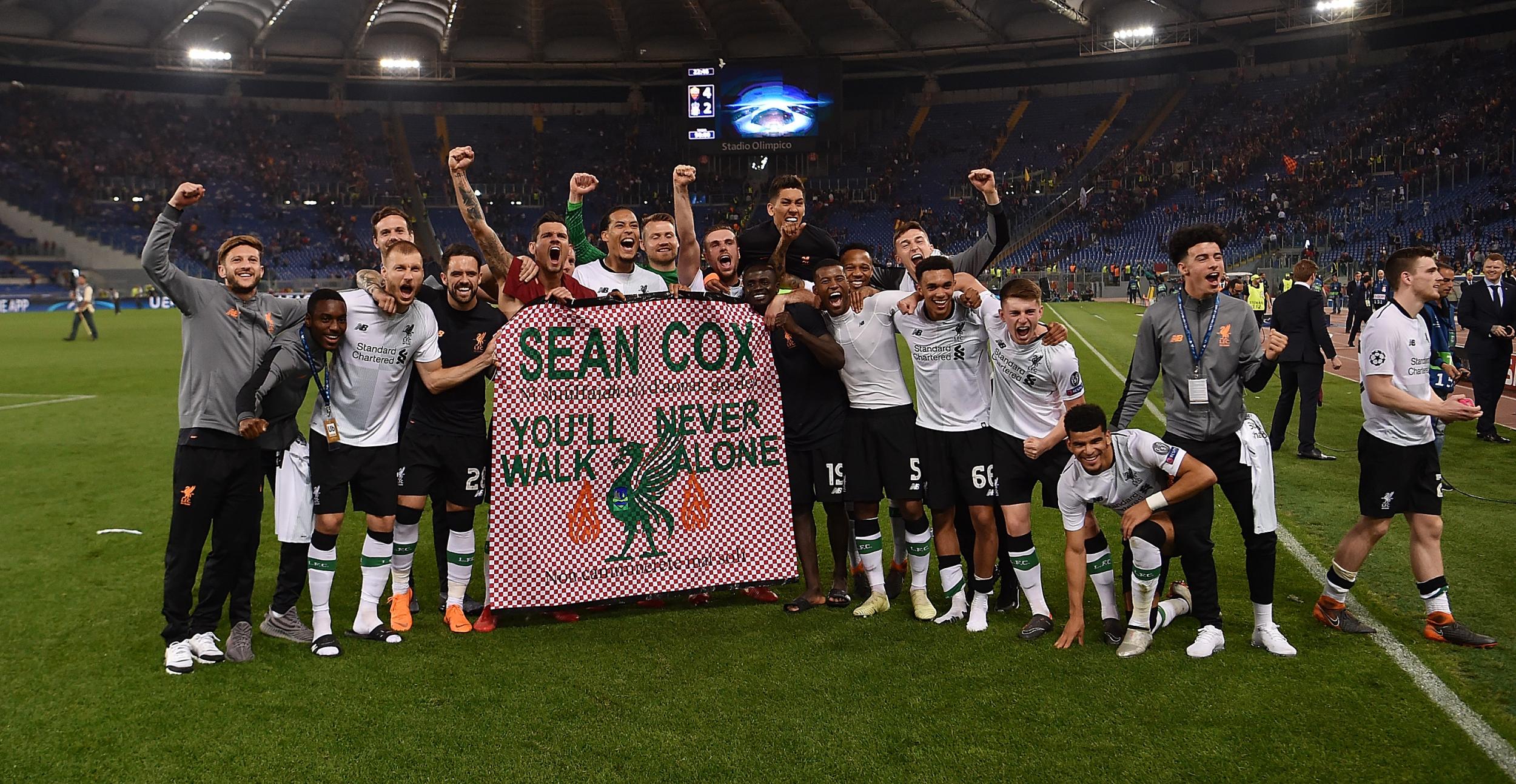
Strengthening the backroom team
In 2016, Bayern Munich unhappily ceded two of their most esteemed staff to Liverpool. Mona Nemmer joined as head of nutrition with Andreas Kornmayer becoming the club’s head of fitness and conditioning.
Klopp has steadily established a “world-class operation” at Melwood. Lee Nobes spent 11 years with Manchester City before being pinched to serve as Liverpool’s chief physio.
Philipp Jacobsen from the famed Aspetar was appointed to the new position of medical rehabilitation and performance manager, while Thomas Gronnemark was drafted in to minimise errors from and maximise the use of throw-ins.
Vitor Matos left Porto, where was assistant coach of their B Team to become Liverpool’s elite development coach in October 2019.
Jack Robinson began his role as the first-team assistant goalkeeping coach in September 2018, while fitness coach Conall Murtagh was promoted from the Academy.
These were some of the main changes at the training complex, with Lijnders rejoining Liverpool as an assistant to Klopp in June 2018 after a six-month stint at the helm of NEC Nijmegen.
“You cannot have enough specialists around you,” Klopp has said and leaning on his brains trust has provided dividends.
Shared responsibility
It is not and has never been a one-man show with Klopp. Each head of department in football – from Edwards to Nemmer – have full jurisdiction over their area of expertise.
“In the end, there’s always that one person that makes the decisions and that’s very often me, but we’ve created a situation where I can have all the best information from the best people before I reach it,” the manager has explained.
“I would say one of my biggest strengths is common sense to be honest, because I’m not too smart, but I understand life in a specific way to realise I don’t have to know everything.
“There are people who know much more in specific parts so we brought them in. And I’m naturally confident, because I know that I’m not perfect, so I don’t think that anybody else should think I’m perfect – I have no problem asking questions.
“I brought a few fantastic people together for the benefit of the club and the project, because, as I said when I came in I didn’t want to change things immediately.
“I wanted to understand why English football teams, especially Liverpool, do things the way they did. And so we changed it little by little and we brought quality in for sure. That is something I’m very proud of.”
Respecting the development process
“Our process has been step-by-step,” Klopp has been keen to stress. “You cannot give everyone a book, where you write all your requirements down and players read it and immediately understand it.
“You have to feel it you, have to do it plenty of time over and over on the training ground and you have to get used to it.”
For the German, a development arc is more rewarding than heavy and persistent investment. Liverpool’s two most expensive signings – Van Dijk and Alisson – have undoubtedly greatly bolstered the defensive ability of the team, but neither player previously experienced the kind of success they are seeing now. It has been a communal growth.
“We have brought in new players, but they alone cannot change everything. We all need to remember this,” Klopp said.
“I know what people think about Virgil van Dijk – he is a fantastic boy and a world-class player, but he did not sort our defensive problems on his own. Football does not work like that.
“Just like how Alisson cannot keep 500 clean sheets in a row by himself. The game does not make that possible.
“We have developed, kept the majority of the team together and made a few, strong adjustments.
“In the moment, we have a really good football team.”
They have developed into the best in the land.
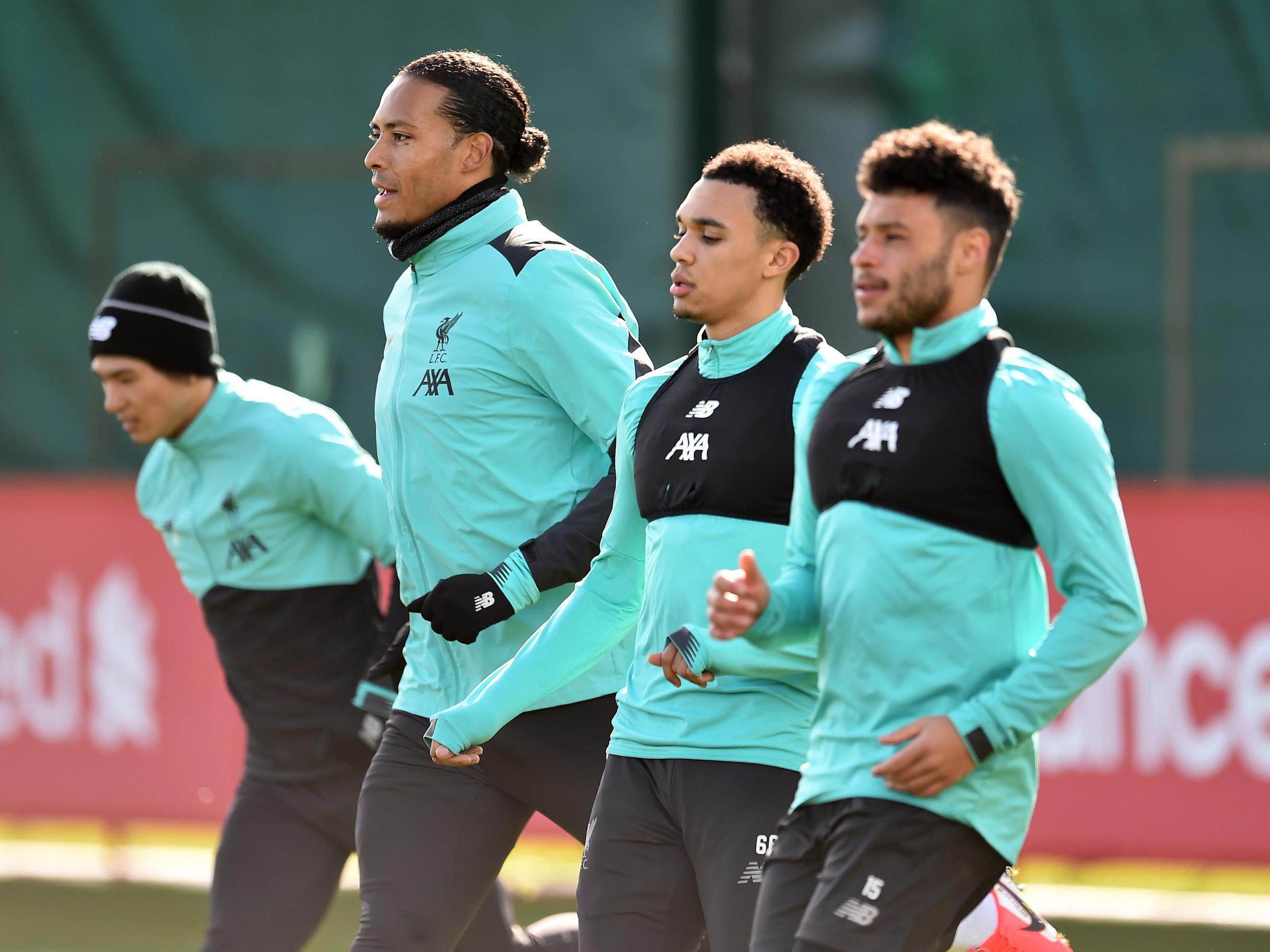
Learning from failure
When Liverpool lost the League Cup final on penalties to City in 2016, Klopp said “only silly idiots stay on the floor.” His main message to the squad was getting to finals is the hard part and must become a habit. Losing them is ok if you learn from them, because it primes you to win.
“Each missed chance is not a failure, it is information – use it and go again,” Klopp regularly preached.
Liverpool would suffer defeat in the Europa League final later that season, before losing the Champions League showpiece two years ago.
Despite recording 97 points – seven more than Arsenal’s “Invincibles” and 21 better than Manchester United’s treble-winning class of 1999 – they missed out on last season’s league title to City.
But then, at the Wanda Metropolitano, they won a sixth European Cup – the first trophy under Klopp – and silverware has since flowed culminating in the prize they’ve always craved.
“You have to lose big to realise you are not a loser,” Klopp said. “You accept it has happened, yes, but that you can still be a winner. These are the things that made us all stronger and I’m happy that I have these boys, that I keep these boys together because they went through all these things.
“This group apart, the players that we signed last year went through a very dark Champions League defeat to a very bright moment at Madrid. And we lost against Real Madrid, but we won it in Madrid: It was like it was meant to be.”
Building a squad of mentality monsters
Liverpool are renowned for having the best recruitment analytics team in the game, but their due diligence on players extends far beyond the numbers. Any potential target has their character, attitude and appetite to go above and beyond examined in detail. How they cope with pressure situations is as interesting and important to scouts as their technical ability.
In 2012, Robertson was tweeting “life at this age is rubbish without no money, #needajob,” while van Dijk was battling a potentially lethal abdominal abscess.
Fast forward and Gini Wijnaldum was relegated with Newcastle, Thierry Henry didn’t know what exactly Alex Oxlade-Chamberlain did at Arsenal or was good at, Xherdan Shaqiri was Stoke’s creative heartbeat yet was scapegoated for their failures.
Pick any Liverpool player and there is a story of resilience that shapes their personal and professional lives, which makes Henderson’s captaincy of the group all the more poetic. The midfielder, once offered to Fulham in a failed part-exchange for Clint Dempsey, is now a European Cup and Premier League-winning skipper: a man that embodies everything the club represents.
Liverpool have managed to assemble a squad of winners that double up as nice people: Mane building schools and hospitals in Senegal, Alexander-Arnold and Robertson’s work for foodbanks, Van Dijk quietly paying for underprivileged children to get Christmas gifts and parties – the list is a lengthy one.
“The character and mentality of these boys, is the only reason why we are where we are,” Klopp has reminded.
“We can use always the attitude of the boys. We can win football games because of how much they want it and we will win.”
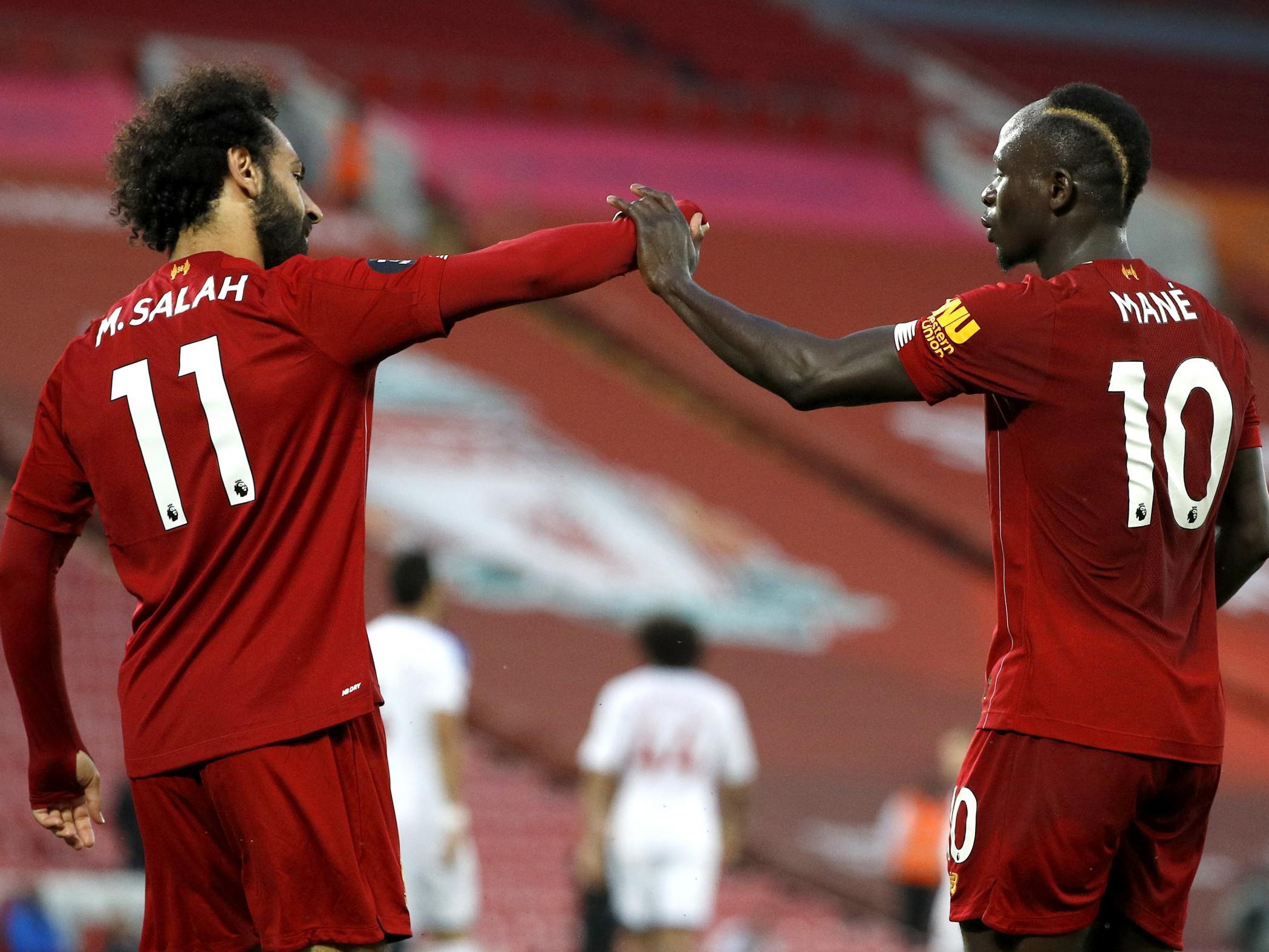
Certified gamechangers policy
For a sizeable amount of fans, modern football is more about winning the transfer market than winning matches. Who can spend the most money?
Who can bring in the biggest blockbuster names? What are the other clubs spending and who are they spending it on?
It leads to impending doom then when rivals land exciting players or a transfer collapses: United were meant to sweep aside all and sundry when Memphis Depay was recruited, how could Liverpool possibly win anything without signing Nabil Fekir?
Klopp, Edwards and Gordon have shunned that buy or bust culture. They spend on what the team requires, rather than who is en vogue and only sanction mega outlays only when the player is considered a certified transformer as was the case with Van Dijk and Alisson.
Liverpool have a net spend of around £74.5m since Klopp’s appointment in 2015 – some may view that lowly figure as a lack of ambition, which doesn’t square with what has happened on the pitch.
The talent of being measured in the market has worked, regardless of whether it is popular or not.
Finding transfer edges
Many of Liverpool’s transfers have not been obvious. They were pilloried for advocating a £29m deal for Firmino, pushing the pursuit of ‘Chelsea flop’ Salah, attracted criticism for signing ‘speed-only’ Mane and underwhelmed when they brought in Robertson, Oxlade-Chamberlain and Wijnaldum.
Liverpool activated Takumi Minamino’s release clause before it was widely known and also took advantage of Shaqiri’s relegation exit stipulation.
They have found edges in the market and shown faith in players that have been overlooked or misjudged.
Embracing analytics
“In terms of using analytics in the transfer market, Liverpool are some distance ahead of their competitors,” David Sumpter, a Professor of Applied Maths and author of Soccermatics, told The Independent.
Ian Graham, the club’s director of research, holds a doctorate in theoretical physics. Lead data analyst William Spearman has a PhD in Physics from Harvard and has refined metrics like goal probability added and pitch control.
“What you need and what they have is a team with a full understanding the club, working towards the same goal through use of a variety of data and knowledge to make informed decisions,” Sumpter said.
“Liverpool are well run, properly structured and have a clear identity. Without this, it wouldn’t matter how brilliant Ian Graham’s work is.
“Not only do they have the right platform for their data scientists to work, but they’ve empowered them and have great synergy in decision-making.
“There is no sole genius at Liverpool. It is not Graham or Klopp or Edwards – it is collection of all these superb minds coming together to meet objectives and generate success.”
Ignacio Palacios-Huerta, a professor at the London School of Economics who doubles up as a director of the football club Athletic Bilbao, has labelled Liverpool “clear leaders” in the use of analytics.
Settling-in periods
Klopp’s demands are taxing and hugely specific, which is why part of Liverpool’s analysis on transfer targets considers whether a target can withstand months of patience while getting to grips with the instructions and mastering the standards on and off the pitch.
The manager and Edwards believe “it’s not about the first three months, but the first three years” and so a settling-in period has become routine for signings.
See Robertson, Oxlade-Chamberlain, and more pertinently as he cost £43.7m, it is worth remembering Fabinho didn’t make the matchday 18 when he joined Liverpool. He had to wait until October to make his first start for the club, undertaking a specialist gym program to enhance his power and fitness, which focused on strengthening his thighs and core without diminishing his speed to the ball in the interim.
That Liverpool have been able to afford these crucial players time to adjust is a credit to the rest of the squad and some names that may not be widely appreciated: Alberto Moreno, Milner, Henderson and Wijnaldum.
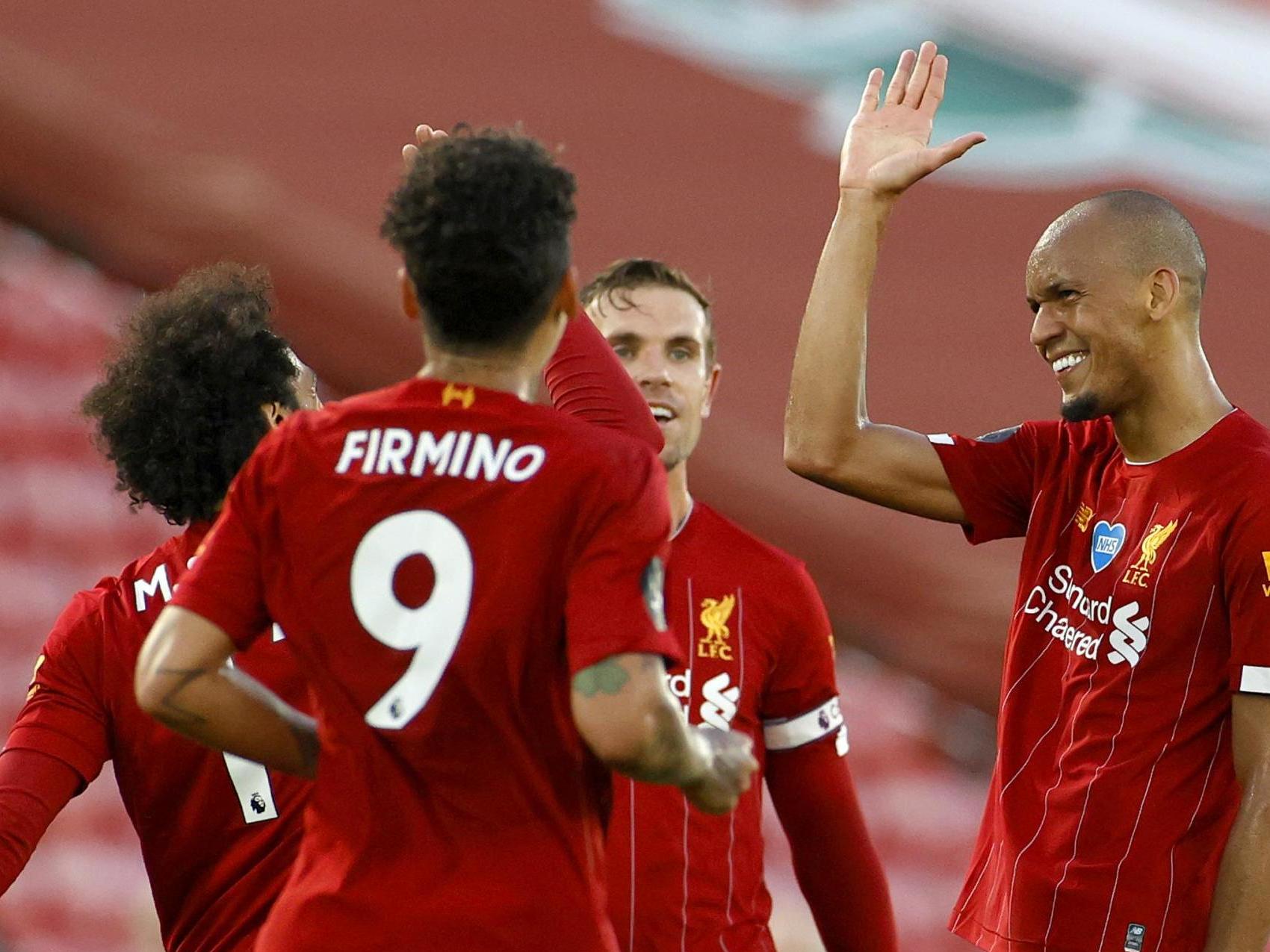
Senior players setting the standard
Klopp and Lijnders have pinpointed the influence of senior players to Liverpool’s winning environment.
Milner, Henderson and Lallana were the architects of a self-governing dressing room with exacting standards for conduct on and off the pitch.
The influence of the former two are often stated, while the latter’s injury problems has seen his work behind the scenes escape attention or get ignored.
Lallana has been particularly important for the younger players, with both Harvey Elliott and Neco Williams recently name-checking him as being a huge help to their adjustment in the first-team set-up.
Van Dijk and Wijnaldum have been pivotal in terms of setting the standards too and it’s no coincidence that Liverpool have so many international captains in their squad given leadership skills count as one of the factors looked for by the recruitment staff.
Culture of excellence
Each person that reports to Melwood has the determination to do everything possible to help Liverpool become the best possible version of themselves. There is pride that the analytics and recruitment departments are so well revered in the game, while Nemmer has revolutionised the club’s understanding of and approach towards nutrition.
The culture of excellence goes beyond the players, extending into every section of the facility. With coronavirus forcing the suspension of football and then an alternation of the routine around it, Liverpool’s sports science and administration staff have come to the fore to ensure a smooth adaptation. The team behind the team are setting new benchmarks in their own spheres as well.
Keeping their best
Under Klopp, the only player to exit Anfield that the club wanted to keep was Philippe Coutinho, who fetched a fee of £142m that was reinvested into the squad.
By the point of his departure, the Brazilian had already given five years of service to Liverpool.
The core of the squad are all tied down to long-term deals and have been happy to recommit despite attention from the likes of Real and Paris Saint-Germain as has been the case with Salah and Mane.
“The new contracts and keeping these boys here is a strong, strong signal for the outside world,” Klopp said. “It’s wonderful sign, to be honest. I like the fact that these boys are really at a good football age.”
If key players are set on seeking new challenges, Liverpool can have confidence in getting super fees and replacing them well.
There has been no indication that any of their big hitters want to leave the club anytime soon.

Looking for solutions within
Whether it has been Milner operating at left-back for a season, Henderson being used on the opposite flank if needed or any other player having to fill in somewhere, Klopp is a fan of solving problems internally rather than always looking to the market.
As touched on already, Alexander-Arnold is a great success of this policy with Neco Williams emerging as his understudy, but the examples are endless. Wijnaldum was a playmaker at Newcastle, but has functioned in nearly every outfield position under the German – even at centre-back.
Klopp believes his players are smart and skilled enough to handle uncomfortable situations, which ultimately improve them as individuals as well as aid the collective.
No drama
Liverpool have not turned any issue into a big drama, rather starving 24-hour news cycles a sniff of turbulence.
Take, for example, the low-key manner Klopp’s long-term assistant Zeljko Buvac departed the club.
‘The Brain’, who the manager once described as “the best signing he’s ever made”, was absent from Melwood since April 2018 due to “personal reasons,” with months passing before a settlement over his contract was reached but there was silence on all fronts.
The pair’s relationship spanned nearly three decades – from team-mates in Mainz to a partnership in the dugout – but there was a breakdown that had been slowly building since their days at Dortmund.
The split was initiated by Buvac, but if Klopp believed that his exit would have negatively affected Liverpool in any way, he would have worked through their differences.
There was a fear that the Bosnian-Serb’s exit would be adverse for the club, but the opposite has been true.
Becoming more streetwise
While Alisson and Van Dijk have been chief reasons behind Liverpool’s much-improved defensive state and game management, those twin aspects were addressed before their arrival.
The senior players’ committee called a meeting after a 3-3 draw away to Sevilla in November 2017 to address the squad’s shortcomings.
Liverpool had been 3-0 ahead by the half-hour mark at Ramon Sanchez Pizjuan, but then operated on emotion rather than intelligence and failed to control the game.
Klopp kept emphasising ‘protection first’ but the squad were getting swept up and sacrificing security for a sense of attacking adventure.
There was a realisation that they needed to be more streetwise and take ownership of commanding matters on the pitch.
That kind of dialogue became a regular occurrence and now such talks do not need to happen with Liverpool becoming masters of killing a game, as seen against Tottenham in last year’s Champions League final.
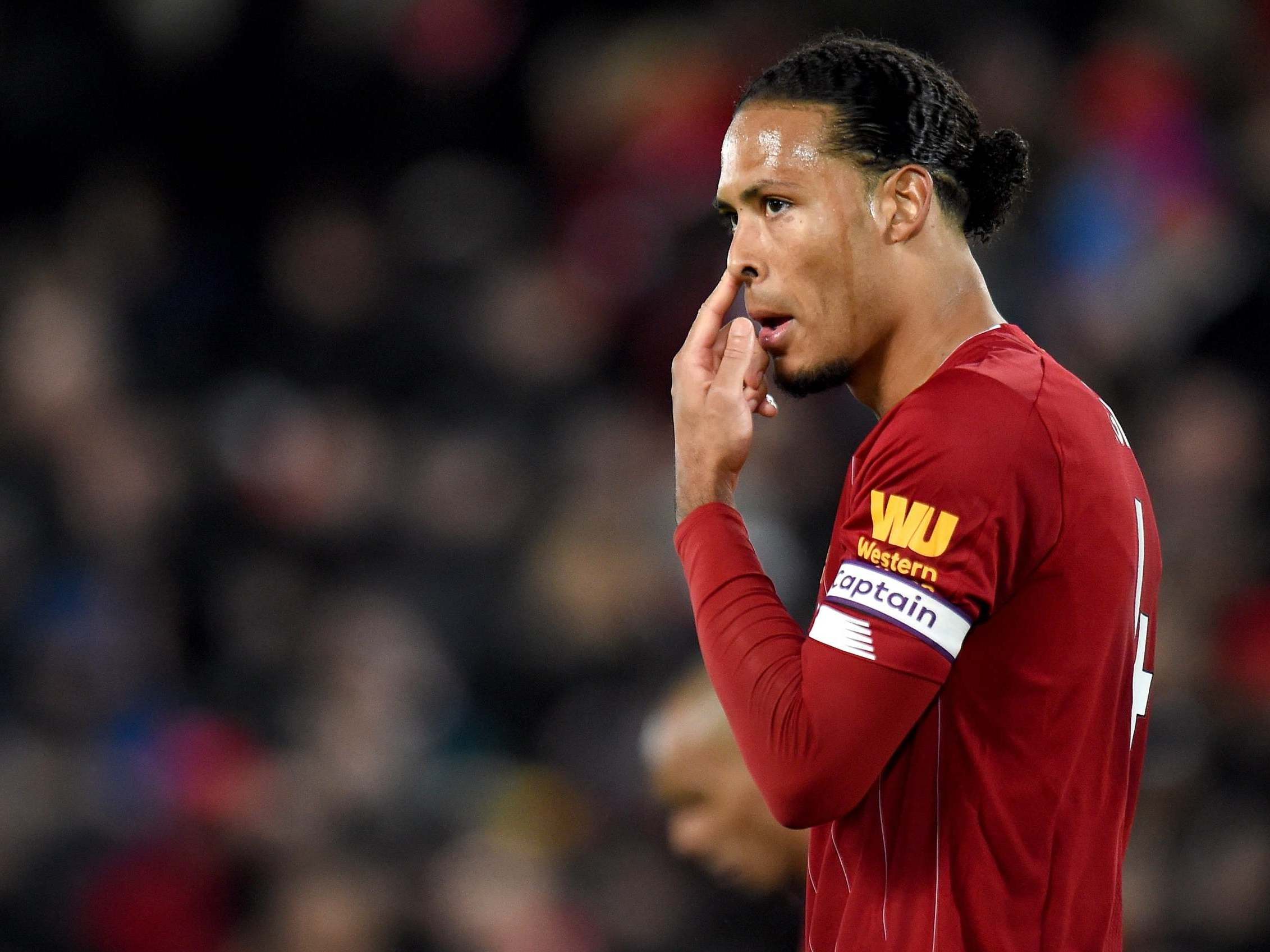
Defensive solidity
“If you want to go fast, focus on attacking. If you want to go far, focus on defending.”
That line from Lijnders is a perfect framing of Liverpool’s focus on solidity rather than shredding the opposition. Aware that most opponents opt to sit deep and wait to punish them on the break, the coaching staff shortened the distance between the midfield three and drilled clever organisation in possession and out of it to aid counter-pressing plus domination of play in the opposition half.
The main way to enhance their defence was to be more purposeful with the ball. By changing the tempo of passing, they could render their adversaries passive and thus unthreatening.
Liverpool had the meanest rearguard in the league last season, which has remained the case.
Set-pieces
Liverpool brought in throw-in coach Gronnemark given around 40-50 occur on average per game.
They have improved with long throws, fast throws which aid counter-attacks and possession-centered clever throws, upgrading their understanding of the right runs to make, how to create space during the set-play and what is the optimum positioning to take.
Liverpool have added variety to their other deadball routines too, hardly ever repeating a rehearsed move.
They Merseysiders scored the most goals from set-pieces last season and have the second-best record in this campaign – one behind Bournemouth.
Learning 500 ways to win a match
Liverpool have showcased a variety of ways to secure maximum points. There have been recoveries: the late leveller at Old Trafford, triumph against Tottenham at Anfield, the win at Villa Park. There has been resilience, too: the clawing to keep out Jose Mourinho’s side in North London, the ugly and narrow ousting of Sheffield United, the almighty battle at Molineux, seeing off Norwich away, the rally to overcome West Ham 3-2.
Liverpool have still been able to blitz and bulldoze teams, with the 4-0 victory at Leicester City the perfect snapshot of their offensive might. A side that was once defined by their attacking blurs have proven themselves capable of doing whatever is necessary to win.
“I said to the lads there are 500 ways to win a football game and today was slightly ugly,” Klopp said in April after the tense finish at Spurs.
“Who cares in the end? Who cares? That’s the situation.”
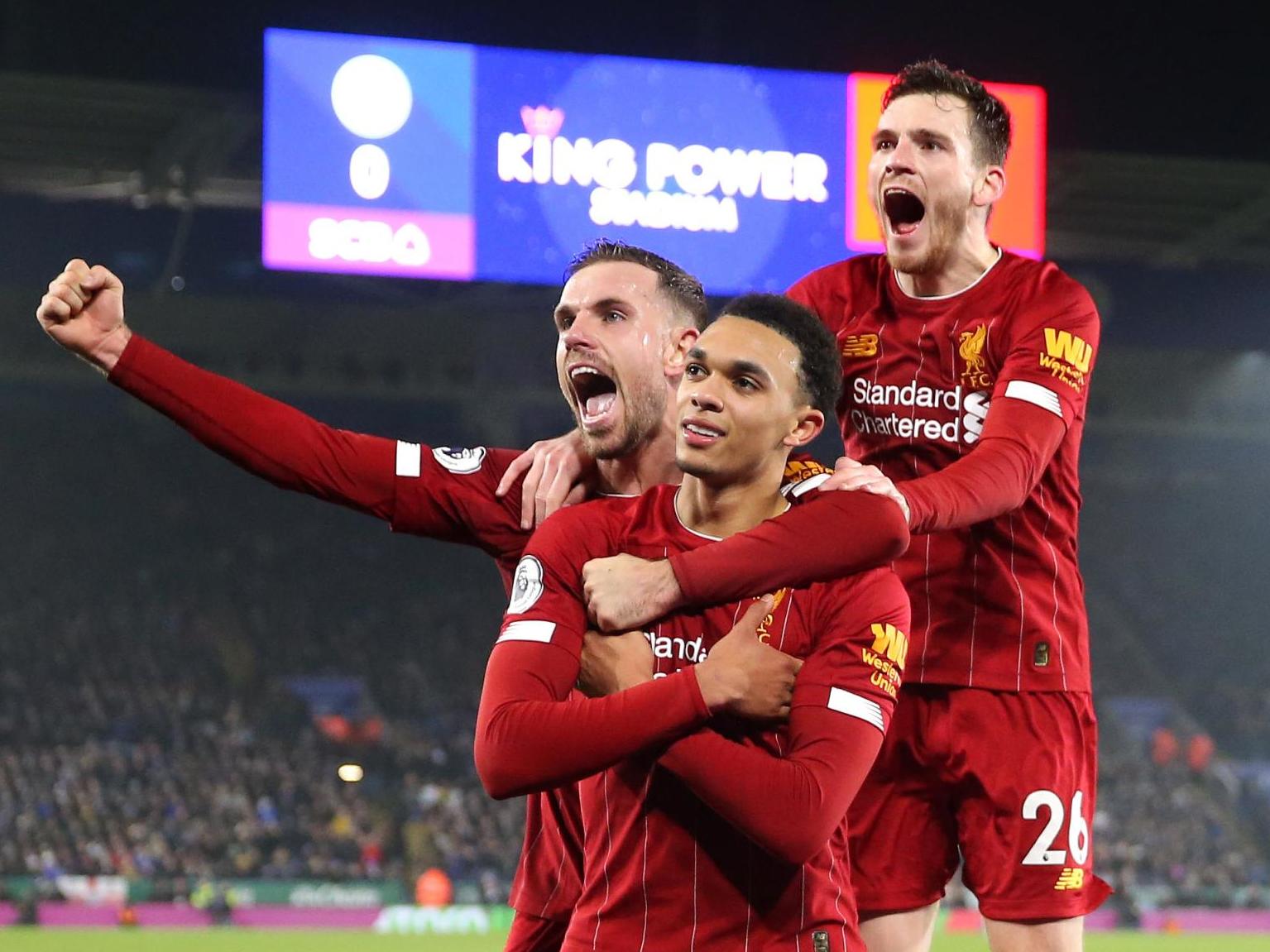
More rest
While there has been adjustments all around him, Klopp too has adjusted.
He has paid greater attention to the importance of rest for his players – both in a physical and mental sense and how he manages the schedule.
The 53-year-old quickly realised the slog of the Premier League is in contrast to the sprint-breather-sprint nature of the Bundesliga.
Altering his approach to training and recovery was not only necessary, but fundamental.
Over the past two seasons, there have been extra days off and impromptu rest periods that have been beneficial for the group.
Experience over emotion
In 2013-14, when Liverpool went so close to the title, a giddiness that coloured everything. That charge was propped up by emotion, where Liverpool’s incredible efforts last campaign and in this one have been marked by experience.
Back then, the club couldn’t believe they were in the title conversation and it was largely put down to having the league’s best player in Luis Suarez.
Now, it’s hard to ascertain just who Liverpool’s standout performer of the season is and the squad believe they belong at the summit. It’s no accident.
They have shared enough disappointments together to collectively condition themselves for success.
Not changing for the sake of it
Under Klopp’s tutelage, Liverpool have shunned making changes for the sake of it – whether it be to the squad or any other area.
While the manager has shown a talent to shape-shift in terms of transfer or playing strategy, he is also quite conservative.
Klopp largely chooses to the back the people already at the club to make a difference. Of course, he has also illustrated that he can fix years worth of weaknesses at goalkeeper, centre-back, left-back and in terms of general operations and facilities.
“You don’t have to change things just for changing sake; it is so you can improve, and improvement means if you have the same person doing the same job for another year, he becomes better at it with the time and experiences,” he explained.
“I’m not afraid of not having a 100% hit rate with decisions or invent some new things for football or whatever. We don’t have to; we just have to use our knowledge.”
Always looking at the bigger picture
During his first pre-season at Liverpool, Klopp said: “When you sit in the main chair like I sit, you have a lot of power, but even more than that, you have all the responsibility.
“And responsibility for me means it never ends, even when you leave. You need to create something where you can really be measured by even after you’ve gone.
“In football, it’s always about pressure and the next game, next game, next game. Somebody has to say ‘stop!’
“The next game will always come, but you need someone who thinks ‘what happens after the games?’
“It’s needs to be the manager, the man in the chair.
“You are so busy planning for the next game, but you also have to take the minutes to think and talk about changing the structure to make it more effective.
“Build this, improve that. I’m interested in everything, in the whole club and when I leave at some point, I don’t want people to celebrate me still, I only want that they can still feel the benefit of me being manager here.”
Klopp has managed to restore Liverpool as a continent and domestic powerhouse and elevated the operation at Melwood while also helping the club progress with the Main Stand expansion, the Anfield Road end development, the new £50m training complex, commercial growth and creating a clearer path from the Academy to the first-team.
He has always considered the bigger picture, which is looking a pretty one for England’s champions.
Join our commenting forum
Join thought-provoking conversations, follow other Independent readers and see their replies
Comments